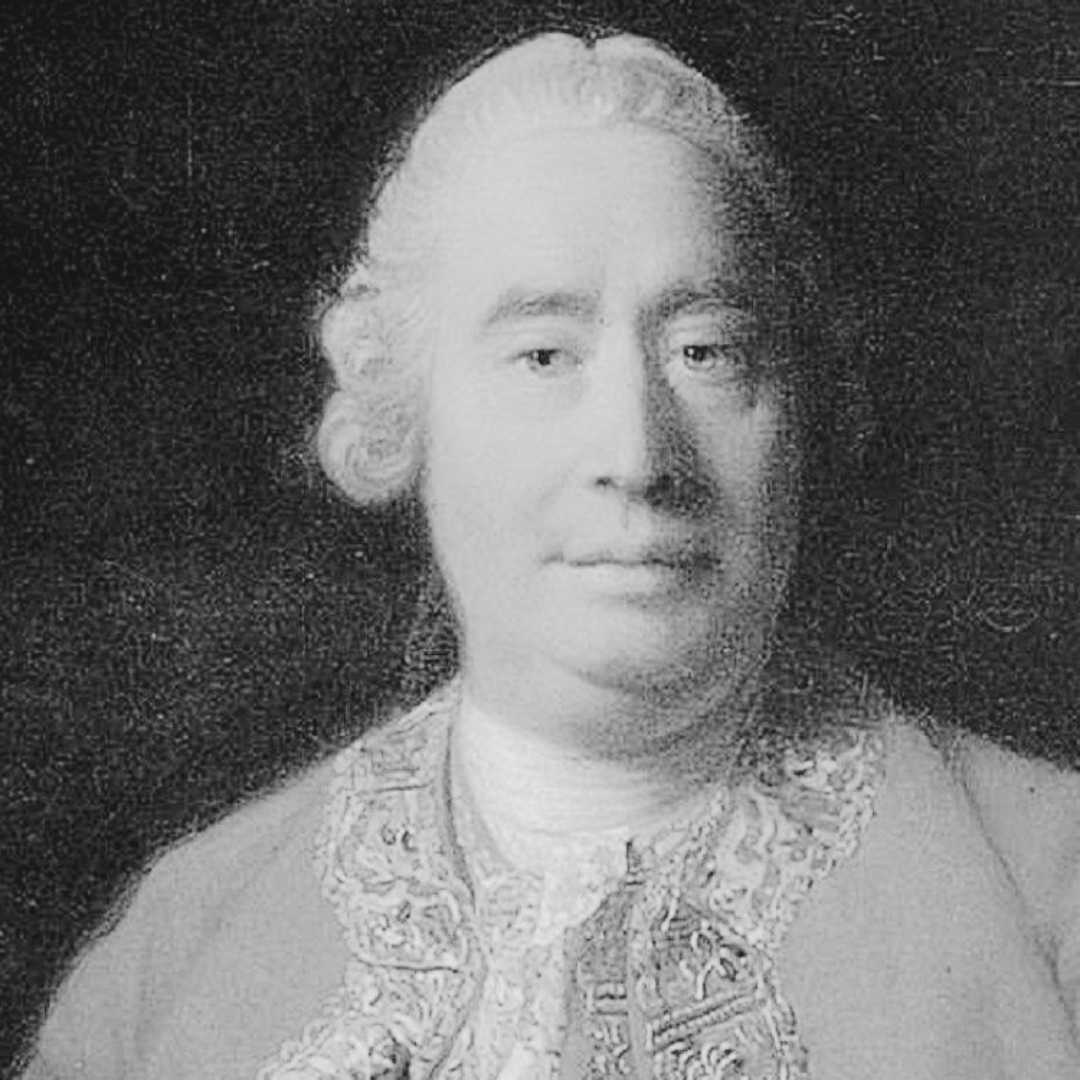Hume makes the argument that virtues occur naturally before they have been taught (Hume, An Enquiry Concerning the Principles of Morals 40), unlike philosophers like Aristotle who argued that virtue is an action innate to us by nature and is actualized through practise and habit. However, close to Aristotle’s statement — that humans, by nature, are social animals — Hume believes that the general foundations of morals are found within the sentiments of humanity and within our social nature. Our morality then, recognized through initial feeling, then developed through the praise or blame of others.
According to Hume, in order to obtain virtue, we must embrace a more public affection and conform to the interests of our society (An Enquiry Concerning the Principles of Morals 43). That being said, we must empathize with the society or community around us in order to recognize the certain accepted sentiments and virtue, which in turn, would bring happiness. Although some aspects of his theory can be accepted in my contemporary life, I do not think a total conformity to the interests of the public would necessarily lead to virtue and/or happiness.
Hume asserts that the perceptions of our minds can be divided into two types: original perceptions, which arise from the soul, our bodies, and from the objects we perceive from our external organs (like touch, taste, sight, etc.) (Hume, Treatise of Human Nature 275); and the second type of perception being the secondary impressions, or reflective impressions, which extends from either the immediate impressions made, or from the consciousness of the idea of such impressions. It is within these reflective impressions that our passions can be found. The passions consist of the bodily pains and pleasures both felt and considered by the mind, which originally arises from the soul, or body, before any initial thought or perception. That being said, our passions do not necessarily derive from reason, but are a direct reaction from the sentiment itself, or the feelings we distinguish. And although these passions often diverge from reason, they are merely an exercise of the collective determinations of such sentiments found in some reflection of the mind (A Treatise of Human Nature 583).
The passions themselves can be divided into that of the calm passions and of the violent passions. The calm passions consist of a sense of beauty and form of action, composition, and recognition of external objects. They are settled principles in action (A Treatise of Human Nature 419), that are the closest sentiments to some sort of reason as they produce subdued emotions, like benevolence, life of life, and the general fondness of external objects (A Treatise of Human Nature 437). The violent passions, on the other hand, are of the more vehement feelings, for example, of love and hatred, grief and joy, and of pride and humility. That being said, the calm passions seem to be a bit more reasonable than the violent, just because the frequencies in which they are exhibited are not as extreme as the violent ones. However, Hume states that these divisions are “far from being exact,” (A Treatise of Human Nature 276), as there is no clear division as to where one passion ends and the other may begin; although, the calm passions will always oppose the violent (A Treatise of Human Nature 418). Nevertheless, both the calm and violent passions pursue some type of good and avoid evil, increasing or diminishing in the increase of diminishment of good or evil (A Treatise of Human Nature 419).
Now, according to Hume, moral praise from others comes from the usefulness of any quality or action; the utility of it regarding a certain end. Reason disciplines us in several tendencies of action, and it is the from the praises or blame of the community or society that specifies what actions or qualities are useful and/or beneficial (An Enquiry Concerning the Principles of Morals 83). Passions are involuntary responses to the world around us, and are based on our emotional responses to our external environment. And even though they are spontaneous and without reason, nevertheless, life without passion would be tasteless and boring. Without the passions, life would lack its luster. Hume says that if human beings have the freedom to model their dispositions, to deliberate what appetites or desires they believe would bring them happiness and joy, to some degree, it would bring them happiness and enjoyment (An Enquiry Concerning the Principles of Morals 81). The usefulness of such passions comes from its abilities to freely exhibit human affections, to truly feel the sentiments that are solely unique to the human experience. Without such passions we would be unable to feel the highs of its pleasures and the lows of its pains. It is only how our society and/or community responds to these passions that we may recognize the distinctions between the calm and violent passions, and may exercise them accordingly.
Morals, according to Hume, indicates some universal sentiment common to all of humanity (An Enquiry Concerning the Principles of Morals 74). With that being said, to be a good person, to live a life of social virtue, would in turn, bring happiness to the individual. This virtue can be obtained socially, through interactions within the public, with other members of our community, and through the Other. According to Hume, it seems like the nature of another individual emanates from the recognitions of character within ourselves, and in order for this recognition to even occur, one must take initiative to first interact with the Other (An Enquiry Concerning the Principles of Morals 77). Hume emphasizes the fact that the individual cannot recognize their own passions without it being explicitly recognized and mentioned to the individual themselves by the Other. Humans are peculiar and complicated beings, most unable to perceive the nature of our passions without the verbal recognition of such characters of ourselves by others, rather than recognizing and making the distinction between these differences in character within ourselves from the Other (An Enquiry Concerning the Principles of Morals 80). No matter what we do, or say, or think, we receive praise or blame, especially in regards to our relationships and interactions with society. And because all human behaviours, actions, and sentiments are judged, Hume states that we must inhabit a public affection and allow the interests of society to coincide with our own individual interests in order to exist in harmony with society (An Enquiry Concerning the Principles of Morals 43).
However, it is important to note that Hume did say that even though the interests of the individual may not align with the society’s, the moral would still be the same, because it contains at least some sentiment common to all human conduct and behaviour (An Enquiry Concerning the Principles of Morals 76). He states Self-love one of the main principles in human nature, and that the interest of each individual is generally closely related to the principles of the community (An Enquiry Concerning the Principles of Morals 42). In addition, there are also varying degrees and extents of the morality and/or sentiments that one individual may have compared to another, and even towards the community or society. Regardless, Hume asserts that the humanity of one individual is the humanity of everyone, and that the same objects that relate to the passions are within all humans (An Enquiry Concerning the Principles of Morals 75). Hume states that individuals would always accept virtue rather than its vices and he exemplifies the vice of vanity alone as enough for an individual to choose the ladder, that it’s virtue of modesty a more favourable trait for all as opposed to its vice — not just for the individual themselves but for the whole of society (An Enquiry Concerning the Principles of Morals 80). Hume states the requisite to happiness entails some inward peace of mind, consciousness of integrity, and a satisfactory review of one’s own conduct; that of which will be cherished and cultivated by every honest individual who feels its importance (An Enquiry Concerning the Principles of Morals 82).
Although Hume makes some excellent arguments in regards to the relation to human morality and sentiments in regards to social nature, I believe this view is quite optimistic and would not be behavior that would work for the individual’s advantage in today’s society. Hume’s argument in relation to individual and social nature is only an ideal that, if it were to be applied to an individual way of life today, would definitely have the individual’s well-being at risk; the being not finding happiness in these virtues, but rather, exposure to losing one’s own personal moral, and the risk of being taken advantage of. Hume’s arguments on human morality and sentiment and its relation to social nature is merely an ideal for the relationship between the individual and their society.
It is important to remember that a society or community is, first and foremost, a group of individuals that interact with their surrounding society or community in their varying degrees (from interactions solely with the family unit, to complete immersions of oneself to the community, to a mix of both extremes). That being said, society — myself speaking from mainly a Western point of view — is composed of a variety of individuals that hold different cultures, norms, and expectancies of others while living in a community that have distinctive cultures, norms, and expectations themselves. What connects these individuals within the group together is the State and its laws. There may also be interactions and relationships with like-minded individuals that may hold similar values as their neighbours, although, more often than not, it is usually not something completely similar to the views of the Other. Living in a society with individuals that hold different perspectives means that there will always be different expectations held for an individual to another, and only sometimes these views may align with the general public, however, more often than not, individual views usually clash. I think the variety of norms and opinions within a society are especially relevant now than in Hume’s time because our Western society is a lot more diverse than it was in the 18th century; globalization, immigration and technological advances has made our society much more culturally assorted than it ever was before. That being said, there are also a lot more varying external and internal standards a society may have on the individual. From beauty standards, to career expectancies, to one’s overall conduct and behaviour to their environment, to conform to all these standards and their variants causes external pressures and stresses towards the individual. The varying cultures and expectancies within the community also brings a variety of sentiments, virtues, and vices that are either praised or blamed within the different groups found within the society itself. In order to conform to all these expectations, if not the majority, it is done so at the risk of compromising one’s own morality, and as a result, individual happiness and enjoyment is in jeopardy.
If the individual freely and completely conforms themselves into the sentiments and standards of their society, they do so at the risk of being taken advantage of by either the Other, or the society itself. We live in a capitalist society that is controlled by private corporations that exploit its workers and consumers in order to create a profit. With this in mind, we are conditioned to compete amongst each other — and ourselves — for resources and to conduct everyday interactions as transactions. Conforming to this standard puts the individual at risk of exploitation, and can drive others to act in accordance with their vices in order to avoid this exploitation. Ways in which one may try to avoid capitalist exploitation can include the inclination to vices like vanity, gluttony, or greed, as opposed to their moral and social virtues of modesty, self-restraint and/or discipline, and generosity.
In conclusion, although Hume writes of an ideal of human morality and its association with human social nature, his regards to the virtuous life leading to happiness has some truth to it. Hume’s interpretation of sentiment and his distinction between the calm and violent passions is also something I believe reveals some truth. I believe his argument is able to encourage the individual into realizing and having a better understanding of their own sentiments and morality by comparing them to both individual praise and/or blame, and that of society’s. I do not think he is completely wrong in relying on the praise and/or blame of the society in order to conduct ourselves, however, as opposed to a complete absorption of such influences, it would be best for the individual to take account into the societal standards and the individual's own standards. I believe that societal praise or blame may initially help the individual develop their own sentiment and moral, however, over time, and with the recognition of sentiments and morals the individual may recognize in Others, the agent is able to find happiness and enjoyment through their own path of moral and virtue.
Works cited
Hume, David. An Enquiry Concerning the Principles of Morals. Edited by J. B. Schneewind, Hackett, 1983.
Hume, David. A Treatise of Human Nature. Clarendon Press, 2011.





